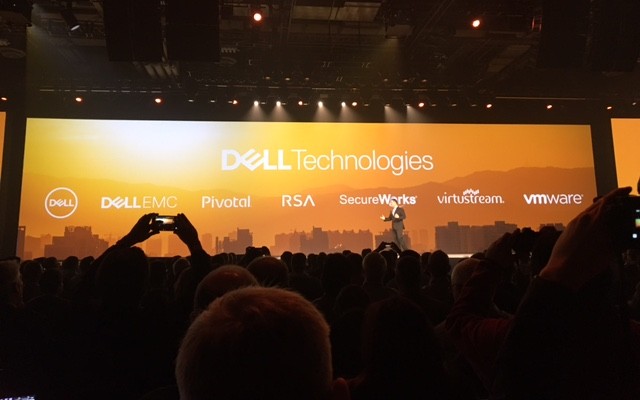Being a private company gives Dell Technologies an added level of flexibility over going public and allows it to take more aggressive risks, according to president and CEO Michael Dell.
Dell has been keen to promote the merits of being privately owned at Dell EMC World 2017 in Las Vegas this week, lauding a structure that allows Dell Technologies to take a longer-term view of the industry and develop its strategy accordingly.
“We have a structural advantage in terms of speed and our financial structure and we have the added benefit of being able to think about our business in a much longer term horizon,” he said in a media Q&A. “Certainly, as a founder that’s something I absolutely love.”
Controlling its destiny
He pointed to the financial benefits which became clear during the merger process between Dell and EMC. The cost of the interest for the combination of the two firms, he explained, is just under $2.2 billion a year, but as public companies they would be spending a combined $5.5 billion on share repurchases, interest and dividends.
“It actually costs less to be a private company in today’s interest rate environment,” he said, creating an “advantaged financial structure” that gives the company more freedom with its finances.
On top of that, being privately owned removes the potential issue of employees or customers being influenced by “activist shareholders” trying to influence the business strategy, which Dell highlighted as being a growing trend.
“If you imagine our company with 147,000 people, with millions of customers around the world, we actually have compete alignment from the people that are out there actually doing the work, all the way through to our leadership.
“There’s no gaps in the middle, there’s no activist shareholder on television saying ‘they should do this or that’. If you’re in a company or you’re a customer and you see that, you start to feel like there are forces beyond my control that are influencing the outcome. And you would be right. That’s the way it works. So we actually have control of our destiny which is an unbelievably valuable thing.”
Of course, one of the companies in the Dell Technologies portfolio that is publicly owned is VMware, but Dell said there are currently no plans to take it private due to the umbrella company having 96 percent voting control.
“It’s one of these public companies where there’s a dual class of shareholder and that’s a unique structure that gives a lot of flexibility when it comes to the long term destiny of the company.”
So far so good
Michael Dell also took a look back at Dell EMC’s first eight months as a single entity after September’s historic $60 billion (£45bn) merger.
His general message what that it has been so far so good, but there is still plenty of work to be done in terms of integrating the products and services of the two companies and working out the best way to approach customers.
“I have to say I’m really thrilled with how all this has come together,” he said. “The last 8 months or so since we completed the combination have gone rather smoothly.
“I can tell you from inside the engine room a lot of things that could go wrong didn’t go wrong. We had some things that we could have done a little bit better but it’s gone actually incredibly smoothly given the scope of everything that we’ve been doing.
“We’ve got a lot of work to do in terms of just selling the new capabilities that we have and we have to figure out how to go and present those to all of our customers around the world, so that’s keeping us pretty busy.”
So, the merger has gone well so far and there’s still more to come. Bad news for Dell’s competitors and music to the ears of its millions of customers around the world.
Quiz: Put your Dell knowledge to the test?





